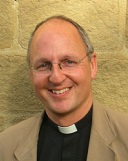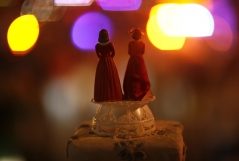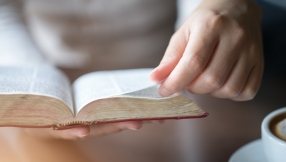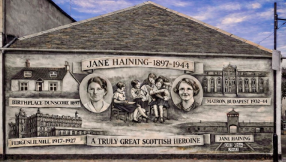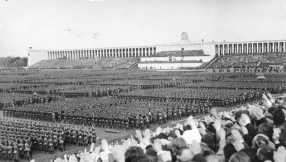One in four regular churchgoers in the UK believes that same-sex relationships should be affirmed by the church, but are reluctant to share their views, a new survey has found.
According to research by the Oasis Trust, almost half (49.6 per cent) of Christians across the main 11 denominations believe that monogamous same-sex relationships should be fully embraced and encouraged. More than two-thirds of respondents (68 per cent) said that their views have become more inclusive over the past decade, with 61 per cent noting that the shift had come as a result of "understanding or interpreting the Bible differently".
However, 37 per cent of the 1,300 people polled said that they were afraid to tell other Christians that they supported gay relationships for fear of being looked down upon. Just over one percent said they didn't believe those in same-sex relationships should be allowed to attend church at all.
Churchgoers are ten per cent more likely to support gay marriage than their leaders, but Oasis found that that clergy who supported same-sex relationships were also reluctant to share their views. Some respondents said that admitting to it could put funding at risk, or even cost them their job.
Director of Oasis, Steve Chalke, told Christian Today he was unsurprised by this. "A huge number of church leaders, both local and national, have come to me and said 'Steve, we're with you, but we don't want to stand up and take the shots for this,'" he said. Many of the most senior church leaders in the country have said they support same-sex relationships, but feel they cannot state it publicly, he added.
"I totally understand why they're scared, but this is one of those funny situations where everyone is afraid of one another. Leaders are scared they'll be rejected by the people, and the people are scared they'll be rejected by their leaders, so this dishonesty develops."
The survey is one of the first to analyse the views of Christians across the denominations, and Chalke said that it is vital that the conversation about same-sex relationships is opened up.
"Whatever the stereotype, it's clear that attitudes in the church toward loving, committed and faithful same-sex relationships are changing," he said. "It's crucial that we keep talking about it."
According to the survey, the most accepting denomination of same-sex relationships is the Quakers – with 100 per cent of those asked saying that they had no problem with those in faithful same-sex relationships fulfilling a leadership role in the church.
Almost 9 in 10 (88 per cent) of Methodists agreed, along with 79 per cent of those who belong to the United Reformed Churches. Just over half of Anglicans (57 per cent) also affirmed their support of gay people participating in all areas and levels of the church.
The majority of respondents said they would be comfortable with their church leader conducting a blessing or marriage ceremony for a gay couple, but some people who said they had no issue with same-sex relationships didn't think churches should hold gay weddings. Five per cent said they were definitely against it, while eight per cent favoured a blessing.
Oasis described the attitudes of churchgoers as having undergone an "ethical earthquake" in the past decade, "despite the more hostile tones of the denominations they belong to."
Chalke said he believed things were changing, albeit very slowly. Despite the Oasis Trust being forced to leave the Evangelical Alliance over his views on homosexuality, "it's amazing how the conversation won't go away. In fact it's growing, I think it's unstoppable," he said.
"We as Christians should be intolerant of intolerance. I think that we should be on the front line of human and civil rights, and I think it's a tragedy that so often, as history has recorded, we drag our feet...The church is supposed to be standing up for faithfulness, integrity and family."
Chalke thinks that the Church will eventually come out in favour of faithful, same-sex relationships. "I think the sandcastle of reisistance is being overwhelmed by the incoming tide," he said.












